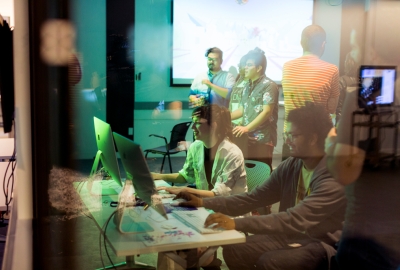This course explores the burgeoning field of social practice art. Today artists working in the field of social practice focus on aesthetics, ethics, collaboration, media strategies, & social activism as central issues that inform their artworks & projects that are designed for public & social spaces. In the United States, visual art that engaged the public directly began in the late 1950s & coincided with the local “decentralization” efforts that, in the arts, resulted in community-based art practices that envisioned the public as diverse, socially-engaged, & contributed to an expansive aesthetic consciousness. Understanding this history contextualizes social practice art & allows us to interrogate the ways artists blur the lines between object making, performance, activism, grass roots organizing & pedagogy.
Course #
ARTCR-GE 2459
Credits
3
Department
Art and Art Professions


